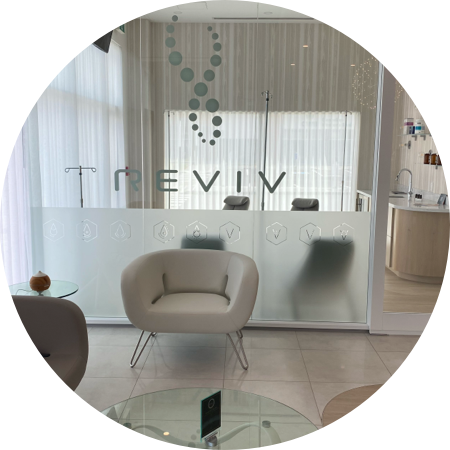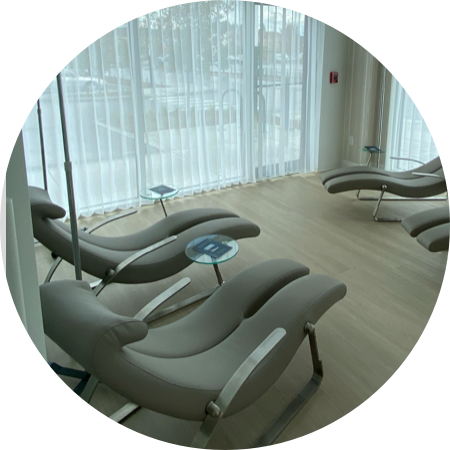Dementia is a neurodegenerative condition that directly affects all parts of a person’s life. While a person with dementia can be helped in memory care, there’s no existing cure. This makes it quite a common question for people to ask: “Am I at risk of dementia?”
While there are some questions you can ask yourself to learn more about this condition, it’s impossible to properly diagnose this at home. Instead, consider seeking the help of a company that specializes in DNA testing since they may be able to determine how likely you are to experience conditions like dementia in the future.
In the world of modern technology, advancements are being made every day in genetic testing. If you’re worried about dealing with any form of memory impairment in your life, consider genetic testing. An experienced professional may be able to determine if you’re likely to experience dementia.
What Is Dementia?
Dementia is a complex and often misunderstood group of neurodegenerative disorders that directly impair your cognitive abilities. It affects your memory, your overall cognitive function, and almost every part of your day-to-day life.
Dementia itself is not a single disease—it’s an umbrella term used for diseases related to memory impairment. Signs of dementia can include:
- Memory loss
- Inability to solve problems
- Difficulty in making decisions
- Communication problems
- Mood swings
- Behavioural changes
Dementia affects your ability to go through your daily life with the full use of your cognitive abilities and often leads to the need for advanced care like memory care.
Am I At Risk of Dementia?
If you’re wondering, “Am I at risk of dementia?” there are a few things you can do at home.
Pay attention to small signs, like how often you forget words, faces, and events. Consider how well you’re managing your daily life and how independent you are. Think about your lifestyle—how healthy are you? Do you have a regular diet, and do you exercise?
All of these play into how likely a person is to be at risk of developing dementia. However, while self-assessment can give you some insights about whether or not you need to make small changes in your life, dementia can’t be self-diagnosed at home.
Instead, consider a DNA test. This offers professional researchers the opportunity to examine your DNA and how likely you are to experience a serious condition like dementia in the future.
Meanwhile, there are some questions you can ask yourself to know what to expect.
Is It Bad to Occasionally Forget Things?
Forgetfulness is a common problem, especially as we age. As you get older, it’s completely normal to begin forgetting things here and there. Your brain is an incredibly complex organ, and it does begin to develop small problems over time. If you forget an event here and there or misplace your keys, it isn’t cause for alarm.
While occasional forgetfulness is normal, frequent or severe memory problems might be a sign of a more serious condition. If you’re concerned about your memory, it may be time to talk with your primary healthcare provider.
Is It Normal to Have Problems Remembering Names?
Forgetting names can be frustrating, but it’s usually not a sign of dementia or Alzheimer’s disease. Trouble remembering names is often a normal part of aging, just like the small issues mentioned above.
If you’re worried about your memory, focus on other symptoms like forgetfulness, confusion, or difficulty completing familiar tasks. Are you still able to navigate most aspects of your life? If so, it’s likely not due to memory impairment.
Do Mood Swings Mean I Might Have Dementia?
Mood swings alone are not likely to be a sign of dementia. Your brain chemistry naturally changes over time, and sometimes mood swings can simply be due to environmental or small lifestyle changes.
However, changes in mood or behaviour might occur in some cases of Alzheimer’s disease. If you or a loved one is experiencing extreme mood swings or behavioural changes, it can help to speak with a healthcare provider to determine what may be causing them.

Can Sleep Problems Lead to Dementia?
There’s some evidence that poor sleep quality or sleep deprivation might increase the risk of dementia or Alzheimer’s disease. Sleep helps the brain consolidate memories and regenerate, so it’s important to prioritize a proper sleep schedule.
While you rest, your brain is recuperating and healing from the day’s events. Disrupting this cycle, or sleeping less than you usually would, can lead to:
- Increased inflammation in the brain
- A negative impact on your mood
- Behavioural changes
- Raised stress levels
All of these symptoms have been linked to a higher risk of memory impairment, making sleep a crucial priority.
Should I Be Worried if I’m Having Trouble Concentrating?
If you’ve noticed you’re recently having trouble concentrating, don’t panic—this can be caused by many other problems like:
It’s important to rule out these conditions before assuming it’s related to dementia or Alzheimer’s disease.
Is Loneliness Linked to Dementia?
Did you know that staying socially active, exercising, and maintaining a healthy diet can help reduce the risk of cognitive decline? This can be particularly helpful if you’re wondering if you’re at risk of dementia.
Socializing with others challenges your brain to solve problems, remember events, and recall names and faces. This helps train the brain to continue using these muscles and can help keep you cognitively strong.
Does Biological Sex Affect the Chances of Dementia?
Women are at a slightly higher risk of developing dementia than men. However, this doesn’t mean that every woman is at risk of experiencing this condition.
This is believed to be partly due to women’s longer life expectancy. However, the risk is also influenced by other factors, like genetics, hormone levels, and lifestyle choices.
How Is Dementia Treated?
There is no cure for dementia—all existing treatment focuses on managing symptoms and improving quality of life. This often includes medications to manage memory problems, therapy, and support from caregivers, family, and friends.
Testing for Dementia in Calgary, AB
Dementia is a complex condition. While there’s no guaranteed way to prevent this condition, understanding the risks can help you stay vigilant about your cognitive health. If you’re worried about whether or not you’re at risk of developing dementia in your life, book an appointment with us at Zulu Medical Cosmetics. Our team can examine your DNA and may be able to determine your likelihood of experiencing memory impairment.















